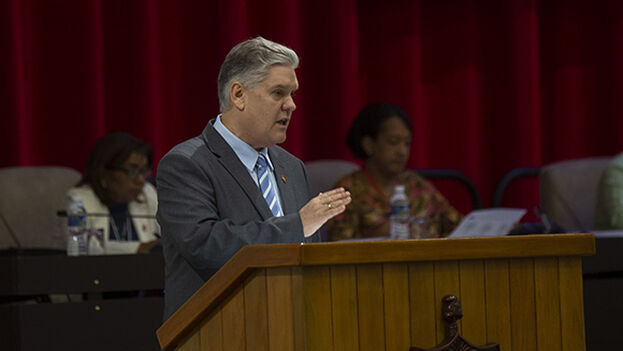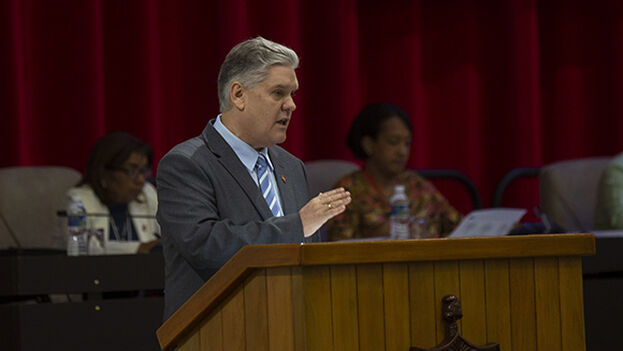
14ymedio, Elías Amor Bravo, Economist, 29 December 2023 — A good part of the State TV Round Table program was dedicated by Alejandro Gil, the Minister of Economy, to the SMEs [small- and medium-sized enterprises], of which he said that there is no stopping of the process or reprisals. Another lie. Because although it is true that in these two years the number of SMEs created has been important, the authorities have not provided data, and this is an essential indicator for evaluating the process. The functioning of SMEs has been conditioned by political action, and survival has been an obstacle course, which the regime, far from facilitating, has continuously complicated.
Along that line, the idea of transferring the powers of approval of SMEs to the municipalities must be interpreted as a control measure, which puts economic actors at the disposal of local communist leaders, who have little expertise in these matters and are obsessed with ideology. The idea of bringing the decision of the evaluation of those businesses, which are on a small scale, closer to their link with local, territorial development and municipal development strategies means that the SMEs will have limitations on their growth and scale and will operate at minimum unit costs, where profits are maximized.
The regime’s bet is that the SMEs remain small and weak, a measure that distances the Cuban economy from the free-market economy and sends a very clear message to those who do not want to see it. They say this process will be gradual, but it will not allow the consolidation of a strong private economic sector.
Local communist leaders have little expertise in these matters and are obsessed with ideology
Secondly, in addition to the transfer to the municipalities of the decision to approve SMEs, Gil announced the revision of the list of unauthorized activities for which they are carrying out an “in-depth analysis with the agencies and receiving criteria from the territorial governments.” In this regard, he said that “there will not be large annotations, but some issues will be corrected and clarifications made. There is no major transformation in the list of unauthorized activities.” Let no one expect much.
Third, Gil said that work is being done on the creation of an institute that will have as its function the coherent attention to the non-state sector of the economy and, later, be linked to the agencies of the Central State Administration for the promotion of policies and the implementation of certain rules. That is, on the one hand, competition is transferred to local powers, and on the other, a central bureaucratic body is created. What are we going to do? What is this tug-of-war?
It seems that this institute will exercise its functions over all non-state economic actors, not just for SMEs but also for non-agricultural cooperatives and self-employed workers. The institute will help lead the non-state economic actors, without direct intervention from the administrative point of view. Control and control. More bureaucracy where it is not needed.
And something that is noticed as soon as the organizational design is analyzed is that Gil’s Ministry of Economy is left out of this new, two-headed design of the national economy. It accesses an unexplored and critical terrain, whose final result is at least uncertain. However, the aim is to accentuate state control in the allocation of resources, fuel, currency and budgets, with attention to non-state economic actors, the national development plan and the country’s projected strategy. A communist hodgepodge that is difficult to digest.
It is hard to find in the world experiences like the ones that are proposed in Cuba. Another lie.
At this point, Gil said that there are sufficient experiences in the world that have been studied to identify the best way to proceed. It would help if he explained them, because it is hard to find in the world experiences like the ones that are pro


